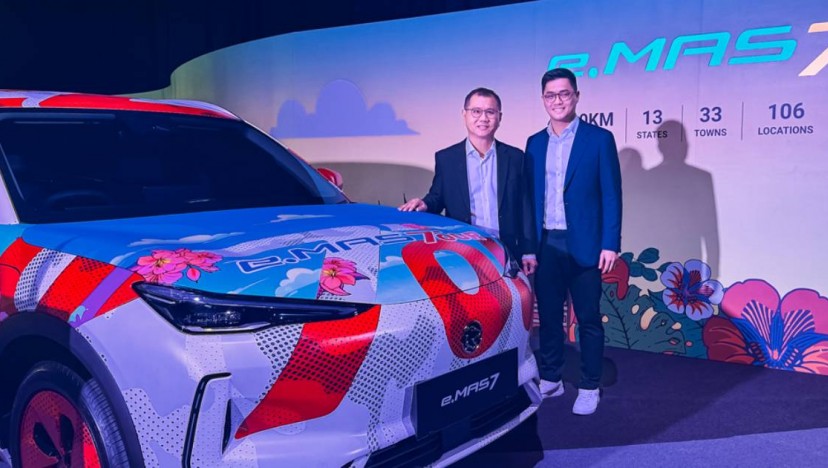Surviving AI as a full-time writer in Singapore
The only thing constant is change. The phrase has resonated with me more than ever as a full-time writer here in Singapore.
The rise of AI was always something that gnawed at the back of my mind. But when my company announced a restructuring within our content team early this year, the suppressed anxiety was thrusted to the forefront.
All our articles were now outsourced to freelancers and the remaining full-timers were reassigned to other roles, from social media producer, digital marketing leads to SEO analysts. It dawned on me that a purely writing role, once a foundation of media companies, no longer existed within my organisation.
The fear of being replaced by AI-generated content was suddenly all too real. However, it also sparked a sense of curiosity in me. Do I accept my fate and let machines render my skillset obsolete or do I adapt, survive and perhaps even thrive?
Redefining my role as a writer
For someone like me, who spent years writing, editing, and crafting stories, this shift was a wake-up call. I never wanted to do anything more than write articles (and eventually a novel) for a living.With the impact of AI becoming more pronounced, I realised that I needed to reframe my perspective.
Instead of viewing AI as an enemy, I began to see it as a potential tool — one that could potentially complement, rather than replace, my work. I look to the Marvel Cinematic Universe and Iron Man of all places for inspiration.
Tony Stark's relationship with J.A.R.V.I.S was proof that learning how to coexist and collaborate with it was not just smart; it's necessary.
I began exploring AI tools and how I could integrate them into my workflow. Programmes such as ChatGPT, Microsoft Copilot and Copy.ai helped to boost productivity, speed up research and solve writer's block.
I no longer needed to crack my head trying to craft the perfect social media copy or send that carefully-worded email. AI can handle those repetitive, time-consuming tasks with just a few targeted prompts, freeing up more of my time to focus on creative and strategic work.
Instead, I focused on the unique skills that I, as a human writer, bring to the table — the ability to think critically, empathise, and communicate nuances that an algorithm can't fully capture. I don't have to waste time with article research or structuring an outline.
With the mental bandwidth to dive deeper into storytelling and analysis, this allowed me to develop my own unique voice and perspective. A machine could string words together, but it wouldn't be able to infuse them with life, context, or cultural sensitivity.
In a place as diverse as Singapore, where understanding nuances and subtle cultural references can make or break a story, I see this as an edge that AI cannot compete with.
Hey, I'm not saying AI tools couldn't pick up colloquial terms or deliver Singlish sentences convincingly in the future, but it definitely won't feel as authentic as my experiences and delivery.
Evolving into a multi-faceted content creator
When I graduated from my local polytechnic with a diploma certificate in Creative Writing for TV and New Media way back in 2012, Instagram wasn't even a thing yet. "New Media" at that point in time was online blogs, Tumblr and using Facebook to upload full-on photo albums.
I never imagined my writing career would transform into such a multi-dimensional role a decade later. In today's media environment, a writer's value often extended beyond crafting words. Social media strategy, digital marketing, and SEO are now essential skills, especially as content moves fluidly across multiple platforms.
I began picking up new skills that complement my writing, from optimising articles for search engines to creating visually engaging posts for social media.
By diversifying, I not only stay relevant but also bring more value to my organisation, even in a landscape where writing roles are evolving. With everything is social-first these days, I even became a content creator by default, adapting my written articles into byte-sized videos for TikTok and Instagram.
Embracing AI with curiosity, not resistance
Ultimately, I've learned that my anxiety toward AI was a natural response to change, but it doesn't have to be an obstacle. Instead of resisting the technology, we should actively seek ways to harness it.
Like every other tool, AI is only as powerful as the person using it, and in my hands, it became an enabler rather than a threat. I am so thankful that I can use ChatGPT to aid me in brainstorming content ideas (the bane of my existence previously) or help me refine my thought process.
While I may no longer hold a "pure" writing role, I've realised that being a writer in today's world means being more versatile, open-minded, and willing to collaborate with technology.
AI might change the nature of writing jobs, but it doesn't diminish the need for human insight, creativity, and empathy. I appreciate having my very own J.A.R.V.I.S to help me navigate through this crazy AI-driven world.
Surviving AI as a full-time writer meant redefining my identity — not as a wordsmith in isolation but as a multi-faceted communicator who uses every tool available to engage and inform. I'm not "just" a writer; I'm a storyteller, strategist, and creative thinker.
AI may change the way I work, but it won't replace the value I bring as a human. In Singapore's ever-evolving media industry, that human touch is, and always will be, my greatest asset. Now, if only an AI tool that can help to create aesthetic presentation decks. Any recommendations?
[[nid:707690]]




